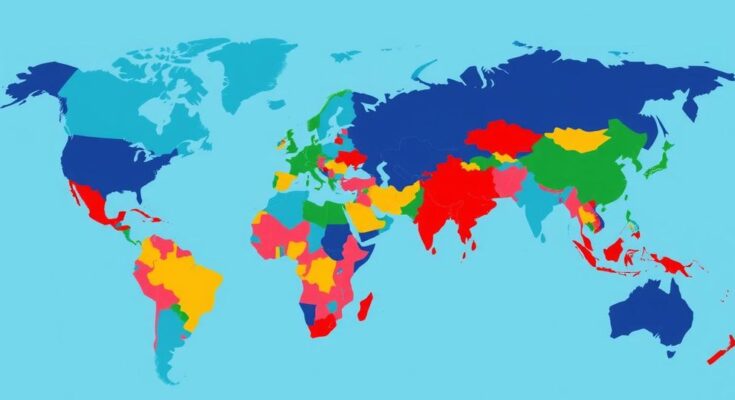The U.S. designates South Sudan and other nations as “Do Not Travel” due to rising violence and instability, adversely affecting the tourism sector and local economies. With restrictions on travel and potential drops in airline operations, tourism suffers severe economic implications as countries navigate an era of heightened security concerns and dangers.
The U.S. Department of State has recently added South Sudan to its highest-risk “Do Not Travel” list, further extending this categorization to countries including Yemen, Venezuela, Russia, Libya, Ukraine, the Central African Republic, and Haiti. This advisory arises from escalating conflicts, rampant crime, and kidnappings in South Sudan, effectively paralleling the decline of safety and viability in global tourism. Consequently, travel restrictions are expected to reduce airline services, limit travel insurance options, and dissuade foreign investments in the hospitality sector, leading to detrimental economic repercussions.
As global instability grows, conflicts and security threats are increasingly hindering travel and tourism across various nations. The issuance of travel advisories is primarily for personal safety, yet they precipitate significant repercussions for local economies dependent on tourism. South Sudan has previously grappled with political unrest, ethnic violence, and an absence of robust governance, and the U.S. has since ordered non-emergency personnel to evacuate, further illustrating the deteriorating security conditions.
The travel advisory expresses concerns over violent crimes, such as armed robberies, shootings, carjackings, and kidnappings, with armed groups proliferating throughout South Sudan. Civilians possess easy access to weapons, intensifying the threat of sudden attacks against foreign nationals, including journalists. Reporting in the region without official approval is illegal, and journalists face severe risks, potentially hindering any hope for tourism recovery in South Sudan, a region known for wildlife and cultural experiences.
Tour operators specializing in adventure tourism face impending declines in bookings as airlines may withdraw or suspend their services, complicating travel logistics. This contraction will tempt tourism-affiliated businesses, such as hotels and guides, to struggle amidst diminishing prospects for survival. Additionally, foreign investment typically wanes in countries listed on the “Do Not Travel” advisory, stalling potential tourism development projects.
Moreover, the new advisory jeopardizes aid workers, journalists, and business professionals operating in South Sudan, prompting many organizations to possibly curtail their activities altogether. This places South Sudan alongside a growing list of nations facing stringent travel advisories that indicate severe security risks that curtail tourism and business ventures.
Yemen represents one of the most perilous destinations globally due to its conflicts and terror agencies like Al-Qaeda and ISIS. Similar dangers are present in Venezuela, where high crime rates and the absence of U.S. diplomatic support hinder travel. Russia’s hostility toward U.S. travelers has escalated since its invasion of Ukraine, while Libya is marred by militia control and rampant violence. Conditions in Ukraine remain treacherous due to ongoing conflict, and the Central African Republic deals with rampant violence from armed groups. Haiti’s political instability and gang control pose significant threats to travelers as well.
The increasing number of nations listed on the U.S. “Do Not Travel” advisory depicts a distressing global safety situation. Key observations include the introduction of South Sudan to the list alongside other high-risk countries, signifying the challenges that tourism faces. With these restrictions, travelers and businesses are compelled to navigate an evolving landscape where entire regions are rendered too unsafe for visitations.
In summary, South Sudan’s addition to the U.S. “Do Not Travel” list signals a troubling trend of deteriorating global security, impacting tourism sectors significantly. The escalating violence and conflicts not only threaten local economies reliant on tourism but also represent larger patterns of instability that challenge the global travel industry. As various nations confront similar advisories, the landscape for international travel continues to shift, urging stakeholders to reassess their strategies in this increasingly perilous environment.
Original Source: www.travelandtourworld.com




